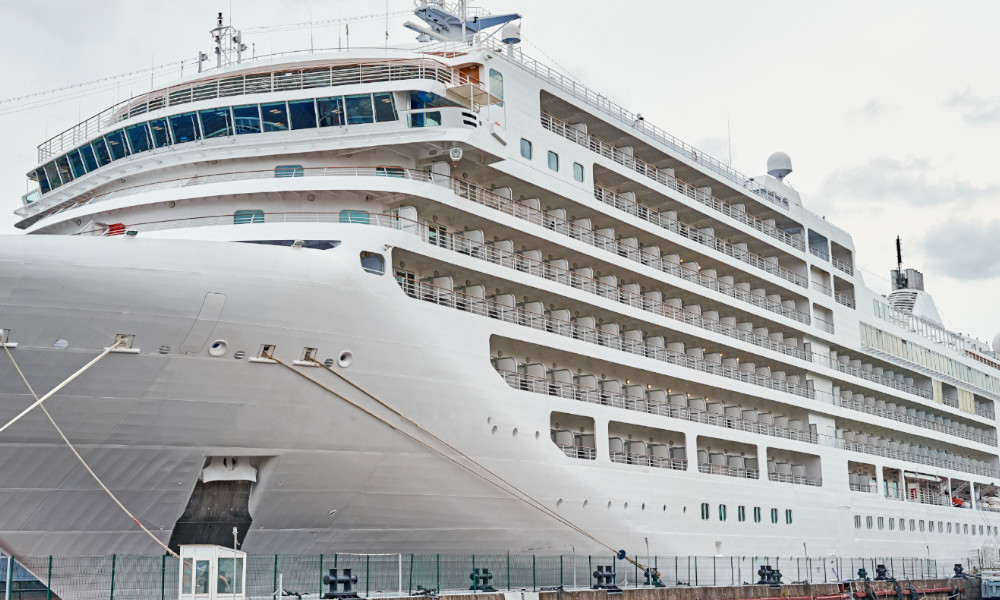Essential Tips for Booking Your Next Cruise
Planning a cruise vacation involves numerous considerations that can significantly impact your overall experience. From choosing the right cruise line to selecting the perfect cabin, understanding what goes into booking a cruise can help you make informed decisions and avoid common pitfalls. This guide outlines essential information and practical advice to ensure your cruise booking process goes smoothly, whether you're a first-timer or a seasoned cruiser.

Key Factors for a Smooth Booking Process
The cruise booking process begins long before you make a payment. Start by determining your budget, preferred destinations, and travel dates. Flexibility with travel dates can often lead to better pricing and availability. Consider booking 12-18 months in advance for popular itineraries or during peak sailing seasons to secure preferred cabins and itineraries. Conversely, last-minute bookings (2-3 months before sailing) can sometimes yield significant savings, though with limited cabin choices.
Understanding cruise fare inclusions is crucial. Basic fares typically cover accommodations, meals in main dining venues, and entertainment. However, specialty dining, alcoholic beverages, gratuities, shore excursions, and onboard activities often incur additional charges. Some cruise lines offer more inclusive packages that bundle these extras, which might provide better value depending on your preferences.
When booking, pay attention to deposit requirements and cancellation policies. Most cruise lines require a deposit at booking, with final payment due 60-120 days before departure. Cancellation penalties increase as your sail date approaches, making travel insurance a prudent consideration to protect your investment.
What Seasoned Cruisers Prioritize
Experienced cruise travelers often focus on value rather than just price. They evaluate the overall experience—considering the ship’s size, onboard amenities, itinerary, and included features—rather than simply booking the cheapest option.
Cabin selection is another priority. Seasoned cruisers understand that location matters as much as cabin category. They avoid cabins near elevators, beneath the pool deck, or above entertainment venues to minimize noise. Many prefer mid-ship locations for better stability in rough seas and convenient access to onboard facilities.
Loyalty programs also influence booking decisions among repeat cruisers. These programs offer perks like priority boarding, exclusive lounges, complimentary laundry service, and onboard credits based on past sailing history. Frequent cruisers often remain loyal to one cruise line to maximize these benefits.
Making Informed Choices for Your Cruise Vacation
Research is essential for making the best cruise decisions. Start by identifying the right cruise line for your travel style and expectations. Luxury lines like Seabourn and Silversea offer sophisticated experiences with all-inclusive pricing, while mainstream lines like Royal Caribbean and Carnival cater to families and budget-conscious travelers with more a la carte pricing models.
Ship size significantly impacts your experience. Larger vessels (3,000+ passengers) offer more amenities, entertainment options, and dining venues but can feel crowded and feature less personalized service. Smaller ships provide more intimate experiences, can visit ports inaccessible to larger vessels, and typically offer higher crew-to-passenger ratios.
Consider the itinerary carefully. Beyond destinations, evaluate port time—some schedules allow only brief visits to key attractions. Sea days offer time to enjoy onboard amenities but might not appeal to travelers who prefer maximizing time in port. Also consider seasonality; Caribbean hurricanes during fall months or rough seas in certain regions during winter can affect your cruise experience.
Understanding Cruise Pricing and Value
Cruise pricing varies widely based on multiple factors including sailing date, cabin category, ship age, and itinerary. Pricing follows a supply-and-demand model, with significant fluctuations throughout the year.
| Cruise Line Category | Average Price Per Person/Day | What’s Typically Included | What’s Extra |
|---|---|---|---|
| Budget (Carnival, MSC) | $70-150 | Basic accommodations, main dining, some entertainment | Specialty dining, beverages, gratuities, Wi-Fi |
| Premium (Princess, Celebrity) | $150-250 | Better accommodations, more dining options, enhanced amenities | Most alcoholic beverages, specialty dining, shore excursions |
| Luxury (Silversea, Regent) | $400-1,000+ | Suite accommodations, premium beverages, specialty dining, sometimes shore excursions | Ultra-premium beverages, spa treatments |
| River Cruises (Viking, AmaWaterways) | $300-500 | Premium accommodations, excursions, beverages with meals, Wi-Fi | Some premium excursions, gratuities on some lines |
Prices, rates, or cost estimates mentioned in this article are based on the latest available information but may change over time. Independent research is advised before making financial decisions.
Beyond the cruise fare, expect to budget for:
-
Gratuities: $14-20 per person/day on mainstream lines
-
Beverage packages: $50-100 per person/day
-
Shore excursions: $50-300 per person/excursion
-
Specialty dining: $25-60 per person/meal
-
Wi-Fi: $15-30 per day
Booking through a travel agent specialized in cruises often provides better value through access to exclusive promotions, onboard credits, and complimentary upgrades that aren’t available when booking directly.
Timing Your Cruise Booking
Strategic timing can significantly impact both pricing and availability. The cruise industry follows relatively predictable patterns that savvy travelers can leverage.
“Wave Season” (January through March) traditionally offers some of the best promotions, with cruise lines competing for bookings for the upcoming year. These promotions typically include reduced deposits, cabin upgrades, onboard credits, or included packages rather than straight fare discounts.
For specific timing guidelines:
-
Alaska cruises: Book 9-12 months in advance for best cabin selection
-
Caribbean cruises: 3-6 months advance booking usually suffices except for holiday sailings
-
European cruises: 8-12 months ahead ensures better flight options and preferred cabins
-
Expedition cruises (Antarctica, Galapagos): 12-18 months due to limited capacity and seasonality
Last-minute bookings (60 days or less before sailing) can offer substantial savings but require flexibility in cabin type, itinerary, and sailing dates. This approach works best for those who live near departure ports and can avoid expensive last-minute airfare.
Final Considerations Before Booking
Review documentation requirements for all ports on your itinerary. Some destinations require passports valid for six months beyond your travel dates, visas, or specific vaccination records. Failure to have proper documentation can result in denied boarding with no refund.
Consider purchasing travel insurance, particularly for expensive cruises or when traveling during hurricane season. Look for policies that cover trip cancellation/interruption, medical emergencies, and evacuation—many cruise line medical facilities aren’t equipped for serious conditions and emergency evacuations can cost tens of thousands of dollars.
Finally, research shore excursion options before booking. While cruise line excursions offer convenience and guaranteed return to the ship, independent options often cost less and provide more personalized experiences. Pre-booking popular excursions is advisable as they frequently sell out before sailing.
By considering these essential factors when booking your cruise, you’ll be well-positioned to make choices that align with your preferences, expectations, and budget, setting the stage for a memorable vacation experience.




